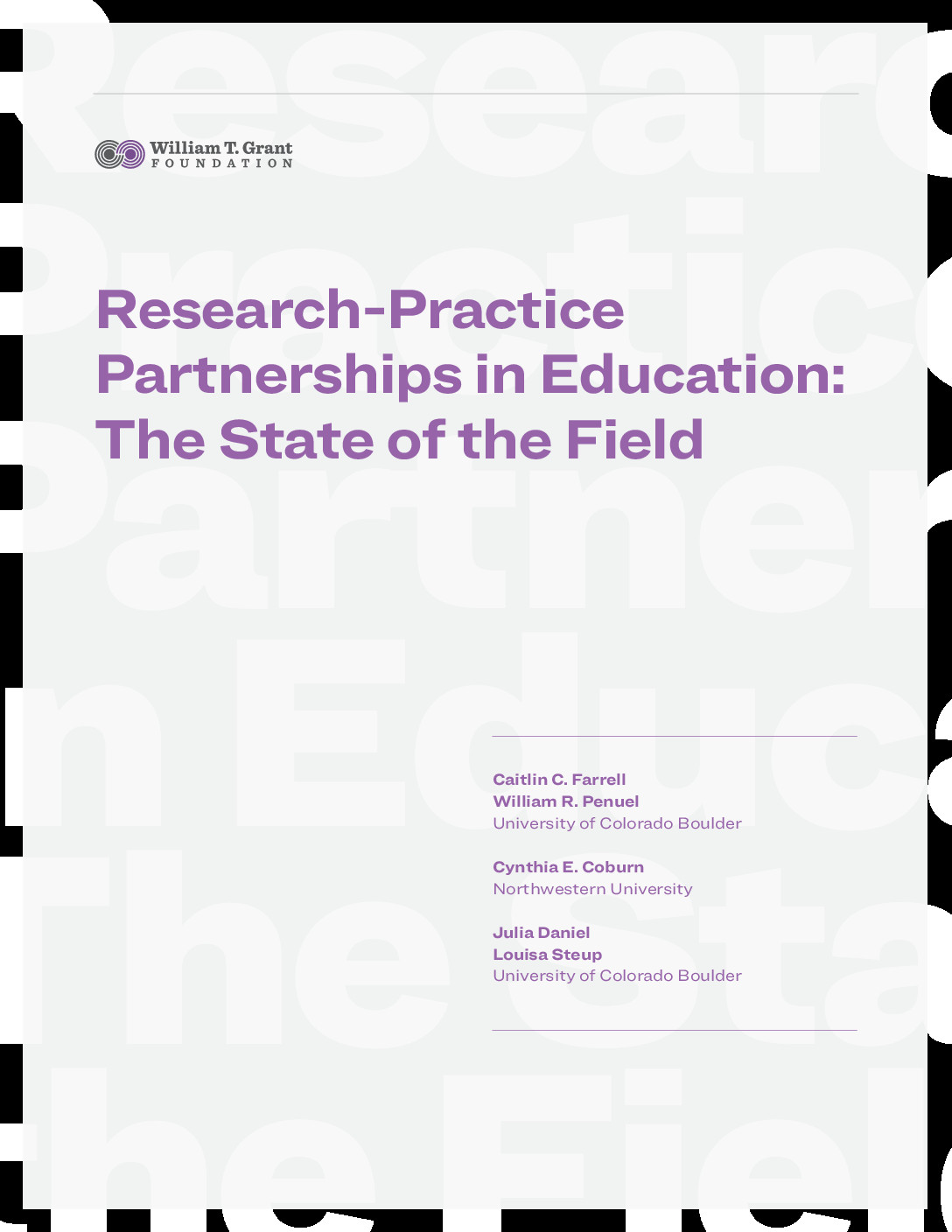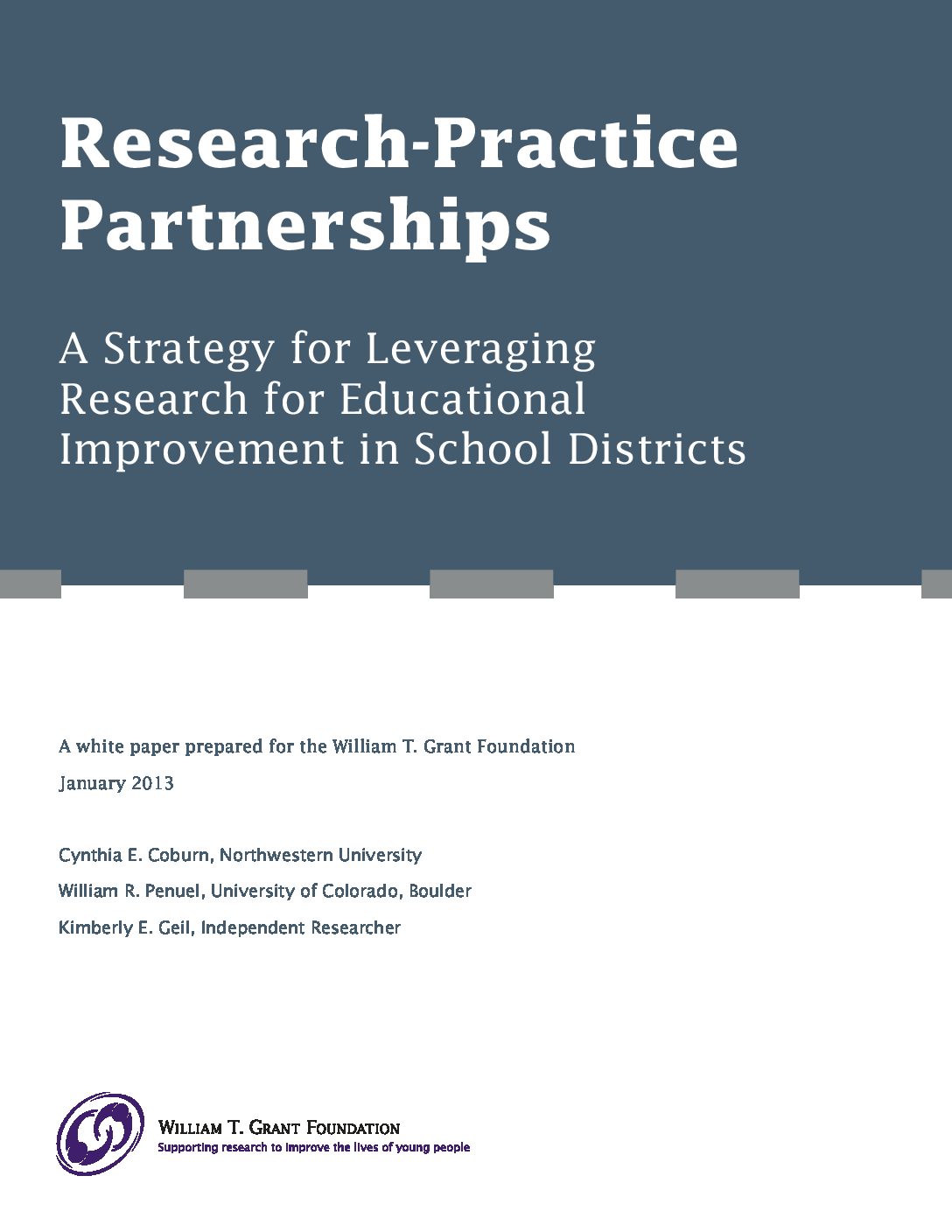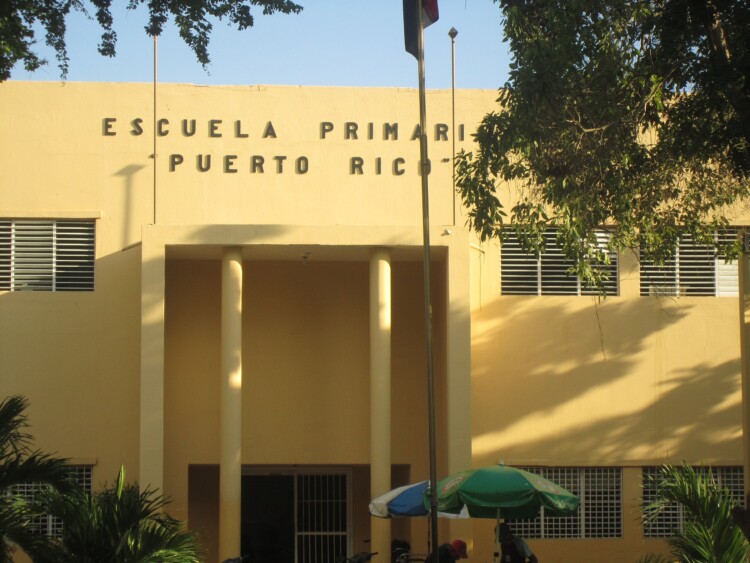Excerpt from the Introduction
Pressures are increasing on educational policy and practice to use research to guide improvement. In recent years, federal programs such as No Child Left Behind, Reading First, and Race to the Top have all provided strong incentives for the use of research in decision-making. Educators, however, may not have the skills or the time to produce, gather, and apply research to meet their improvement goals. The available research may not be useful or credible because researchers are not always focused on answering questions relevant to school districts’ most pressing needs. And, too often, research findings aren’t accessible to educators or arrive too late to make a difference.
Recently, though, there have been concerted efforts to forge new and different kinds of relationships between researchers and practitioners. School districts across the country are developing a new kind of partnership with researchers. These research-practice partnerships are long-term collaborations, which are organized to investigate problems of practice and generate solutions for improving district outcomes. Advocates argue that educators will better understand the research and its implications because they help develop it and have ready access to the researchers. Partnerships may also produce research and innovations that are more useful to practice because they are rooted in districts’ needs. District leaders are likely to see the research that partnerships produce as more credible because studies are done with local students and take into account local conditions. All these factors may increase the likelihood that districts will use the research findings and tools produced in the partnerships to support their efforts to improve outcomes for children and youth.
Evidence is beginning to accumulate in support of these claims. When research-practice partnerships develop new educational innovations, districts adopt these new innovations in ways that can result in changes in teacher and administrator practice and increased student learning. Research-practice partnerships have also developed promising track records in fields as diverse as health care, social services, urban planning, and community policing.
Research-practice partnerships are bold new initiatives. We are beginning to learn about the challenges they encounter and strategies they use to ensure productivity and success. We want to provide insight into the strategic trade-offs partnerships face and the resources they need to be successful. We hope that this paper can be a guide for those seeking to develop or maintain research-practice partnerships as well as for funders of such partnerships.







